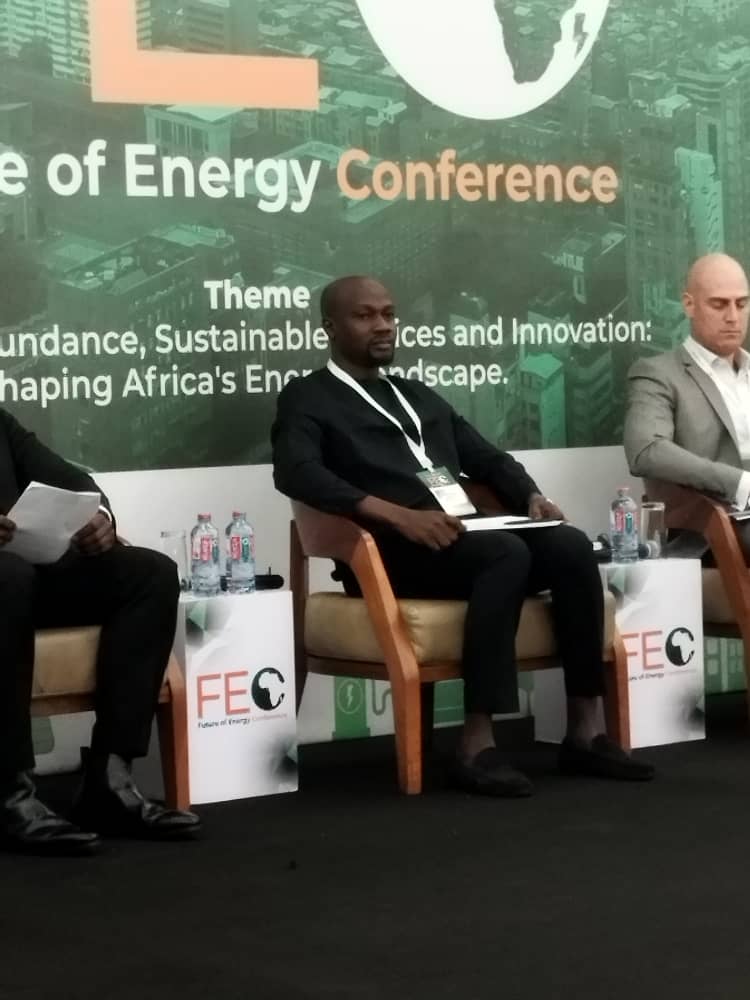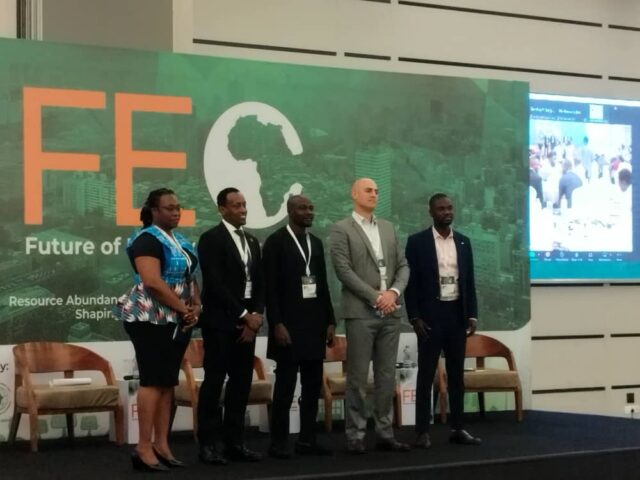The Future of Energy Conference 2023 (#FEC2023) took place on 25 and 26 October 2023 in Accra, Ghana under the theme: “Abundant Resources, Sustainable Choices and Innovations: Shaping Africa’s Energy Landscape”. Organised by the Ghana-based Africa Center for Energy Policy (ACEP), in collaboration with Oxfam, Publish What You Pay, the Ford Foundation, the AfDB and Africa_initiative, a number of papers were presented over the 2 days by various experts.
The conference is being organised at a time when the debate on the exploitation of transition minerals, the energy transition, climate change and the use of clean energy is very topical.
Indeed, Africa is home to almost 30% of the minerals needed for clean energy. The continent contributes just 3% to global warming. Yet it is the continent with the lowest energy consumption. How can the energy transition resolve the issue of energy poverty for industry?
Dr. Yumkella Kandeh of Sierra Leone said: “Africa is rich in transition minerals that will be useful for the energy of the future. Africa must be the centre of the transformation of transition minerals through the production of electronic batteries and fertilisers for agriculture”.
Africa must chart its course according to its context
Demba Seydi, Regional Coordinator for French-speaking West Africa of Publish What You Pay (PWYP), said that future public energy policies must be developed in a participatory manner to take account of the expectations of local populations. They must be covered by total transparency and accountability systems. In his view, Africa must develop sustainable internal mechanisms to finance the production of clean energy, because the institution that is going to finance Africa is going to impose its own agenda.
They all made these remarks during 3 panels on the first day. The first panel “Towards a Just Transition: What does transition mean for Africa?” explored the global visions and orientations of the energy transition, with a particular focus on Africa’s particularities. The panellists explained how Africa can define the energy transition according to its context in order to exploit the inherent economic opportunities. The second session on the future of electric vehicles showed that these vehicles could change the face of transport. The switch from combustion engines to electric vehicles has become a critical objective for many car manufacturers and is rapidly gaining ground. This development prompted a debate on the future of Africa.

Session 3 looked at the role of the African Continental Free Trade Area (AfCFTA) in a regional value chain for energy transition technologies. The AfCFTA was created to liberalise trade in goods and services between its member states. This liberalisation of cross-border trade can encourage African countries to develop their key skills along the value chain for technologies linked to the energy transition. This session examined the role of the AfCFTA in establishing effective regional collaboration for a just and inclusive transition.
The role of government and business in reducing energy poverty
On the second day (26 October 2023), two sessions were held, one on “Access strategies for Africa’s national oil companies to the energy of the future” and the other on “The role of governments and companies in marketing gas through effective methane management”.
At least 500 people attended the FEC 2023. They came from Development Partners, Heads of Mission and Embassies in Ghana, Oil Companies and International Financial Institutions, Regional and International Economic Institutions, International Think Tanks/NGOs, Government Regulatory Authorities, Civil Society Organisations, National Oil and Gas Companies, the Private Sector, Academia, Traditional Authorities, the Media, etc.
About the conference
The Future of Energy Conference (FEC), the first of its kind, replaces the annual African Oil Governance Summit (AOGS) as the flagship programme of the African Centre for Energy Policy (ACEP). This change is part of a shift in the focus of energy sector governance beyond oil and gas governance. As a result, the FEC is dedicated to exploring the energy transition in the African context. Given the global urgency of the energy transition and the abundance of natural resources in Africa, there is a compelling need for continent-wide discussions.
The FEC is a platform for stakeholders inside and outside the energy industry in Africa and beyond to discuss effective and practical approaches to fostering sustainable and inclusive development in the energy sector. For this reason, discussions at FEC 2023 focused on the African perspective on energy transition, addressing potential risks and identifying solutions that promote economic benefits. It also examined Africa’s energy needs and the range of technologies and resources that can sustainably reduce energy poverty and advance industrial growth.
Based on the discussion points from the conference, ACEP intends to work with experts and relevant stakeholders to develop a policy paper that comprehensively assesses Africa’s energy needs and the range of technologies and resources that can sustainably reduce energy poverty and advance industrial growth. The policy paper will advise African governments on regulatory reforms and strategic pathways to shape Africa’s energy landscape.
Elie KABORE, Depuis Acrra
#Mines_Actu_Burkina










